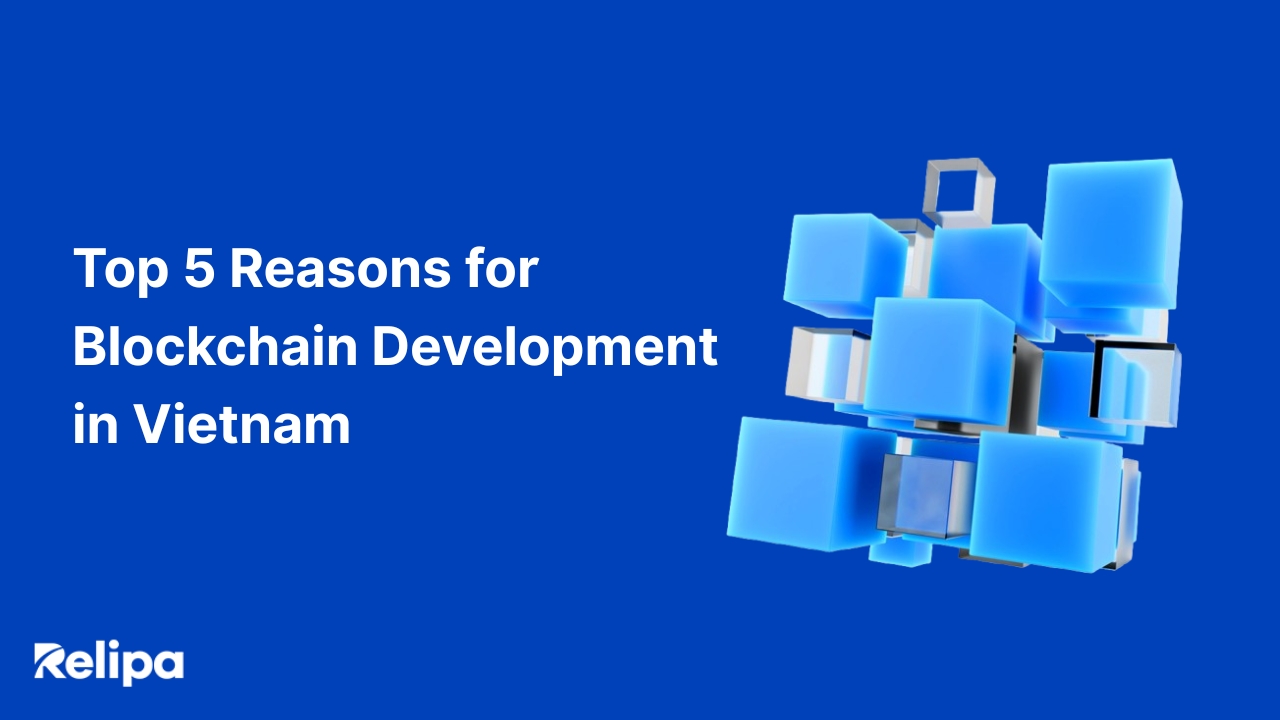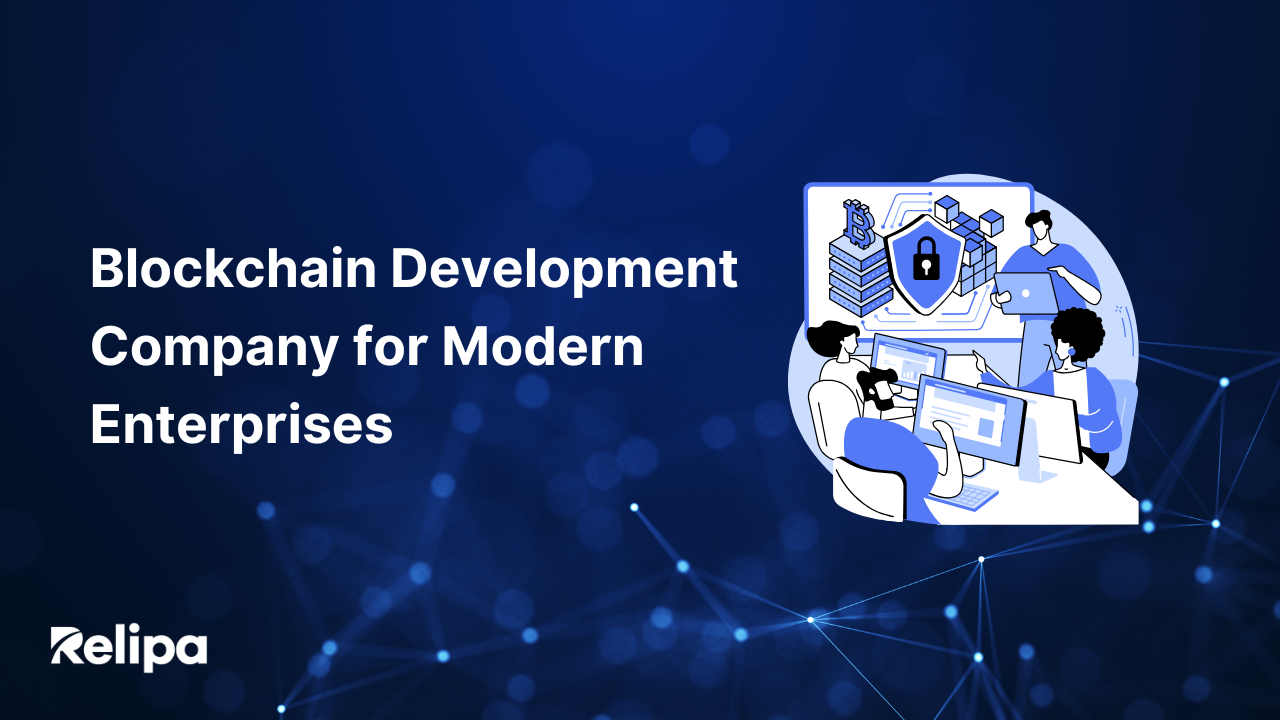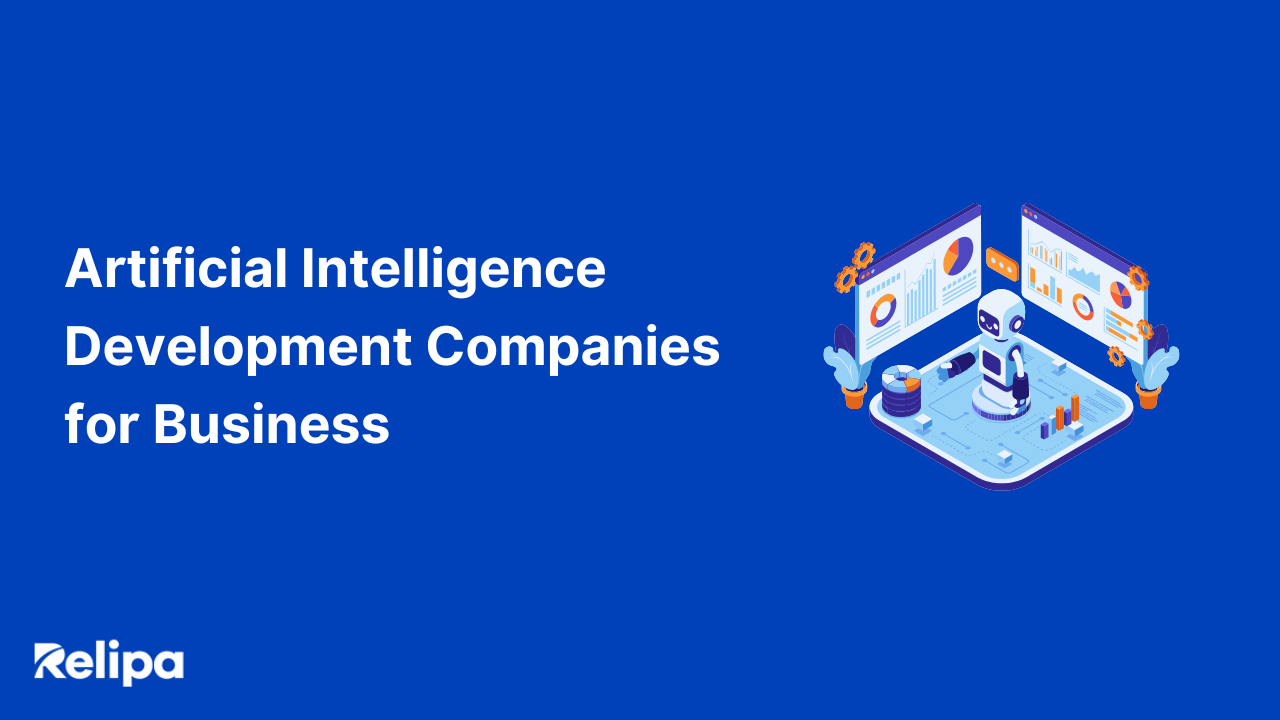Blockchain Development Services in Vietnam: 5 Key Reasons
Blockchain development services in Vietnam have undergone a remarkable transformation over the past decade. Once known mainly for manufacturing and traditional IT outsourcing, Vietnam is now emerging as a serious global contender in blockchain development. Today, the country is not only producing world-class engineers but also delivering blockchain solutions that attract international attention.
This shift is driven by a unique mix of factors: a young, tech-savvy workforce eager to master blockchain technologies, a cost structure attractive to startups and enterprises, and a dynamic startup ecosystem. By leveraging its long-standing reputation as an outsourcing hub, Vietnam is positioning itself as a trusted destination for high-quality blockchain development services. Below are five key reasons why international companies are increasingly turning to Vietnam.

Skilled and Tech-Savvy Workforce Powering Blockchain Development Services
Vietnam currently employs over 1.2 million IT professionals across approximately 74,000 technology companies, creating a strong foundation for advanced digital services. Each year, universities produce 50,000–57,000 IT and computer science graduates, supplying a steady pipeline of young talent.
In the context of blockchain development services, Vietnam already has more than 5,000 active Web3 and blockchain developers. Many have built practical expertise through boot camps, online programs, and hands-on community initiatives such as ETHVietnam and Vietnam Blockchain Week.
Although only around 30% of graduates are immediately industry-ready, the government is actively addressing this gap. Vietnam aims to produce 100,000 ICT graduates annually by 2030–2035, with a strong focus on advanced technologies, reinforcing its long-term commitment to high-quality blockchain development services.
Read more: Blockchain in Vietnam: Insights and Applications
Cost-Effective Development without Compromising Quality
One of the strongest advantages of blockchain development services in Vietnam is cost efficiency.
Average hourly rates:
-
Junior developers: $10–$28
-
Mid-level developers: $18–$28
-
Senior blockchain specialists: $28–$45
-
Expert or lead roles: $80+
By comparison, similar roles in the US or Western Europe typically cost $100–$200 per hour. This allows companies to save 50–70% on development costs while maintaining strong technical quality.
Lower operational expenses—office space, utilities, and recruitment—further reduce the total cost of blockchain development services. A mid-sized blockchain application in Hanoi often costs $10,000–$30,000, making Vietnam ideal for MVP development and scalable blockchain solutions.
A Thriving Community Supporting Blockchain Development Services
Vietnam’s blockchain ecosystem has expanded rapidly, supported by frequent meetups, hackathons, and conferences. Events such as ETHVietnam, Vietnam Blockchain Summit, and Vietnam Blockchain Week attract thousands of developers, founders, and investors.
Vietnamese developers are also highly active in global Web3 communities, contributing to GitHub projects and international hackathons. According to Chainalysis’s 2023 Global Crypto Adoption Index, Vietnam ranked third worldwide in crypto adoption—an indicator of strong grassroots engagement with blockchain technologies.
Success stories like Axie Infinity (Sky Mavis) demonstrate how local talent can build blockchain products with global reach, further strengthening demand for professional blockchain development services.
A Dynamic Startup Ecosystem Fueling Blockchain Development Services
Blockchain development services in Vietnam are closely tied to a fast-growing startup ecosystem. Vietnam has become one of Southeast Asia’s most active startup hubs, driven by young entrepreneurs, rising venture capital inflows, and supportive government policies.
According to the Vietnam Innovation & Tech Investment Report 2023, the country attracted nearly $529 million in startup funding, with blockchain, fintech, and gaming among the most attractive sectors. Projects such as Kyber Network, along with emerging GameFi and NFT platforms, highlight Vietnam’s ability to scale blockchain products globally.
Accelerators like VIISA and partnerships with large tech firms provide mentorship, funding, and international exposure—creating ideal conditions for sustainable blockchain development services.
Vietnam’s Strength as an IT Outsourcing Hub for Blockchain Development Services
Vietnam’s two-decade track record in IT outsourcing underpins its credibility in delivering blockchain development services. The country serves clients across Japan, South Korea, the US, Europe, and broader Asia.
According to VINASA, Vietnam’s outsourcing industry has grown 10–15% annually, with IT service exports generating billions of dollars. Global enterprises such as IBM, Microsoft, and Samsung already rely on Vietnamese engineers, validating the market’s maturity.
For blockchain projects, this translates into reliable delivery across smart contract development, DeFi platforms, NFT marketplaces, and blockchain-based supply chain solutions.
Read more: Top 5 Blockchain Countries in Asia
Practical Advice for Starting a Blockchain Development Project in Vietnam
Outsourcing blockchain development to Vietnam offers clear advantages, but to unlock real value, businesses need a structured approach. Here’s a step-by-step guide with actionable details:
1. Define Your Project Scope Clearly
- Write down what problem your blockchain solution will solve (e.g., supply chain traceability, DeFi platform, NFT marketplace)
- Specify whether you need end-to-end development or just specific components like smart contracts, auditing, or UX/UI
- Prepare a list of must-have features and a timeline for MVP vs. Full product rollout
2. Select the Right Partner Strategically
- Look for companies with blockchain-specific case studies, not just generic web/app projects
- Verify their credentials: ISO 27001 for information security or CMMI Level 3+ for process maturity
- Request code samples or GitHub repositories to evaluate coding quality and style
- Interview the actual project team, not just sales reps, to confirm hands-on expertise in Solidity, Rust, or Go
3. Structure Your Engagement Model
- Pilot/MVP first: Start with a 2 – 3 month project budgeted depending on scope
- Use clear contracts: Include scope of work, deliverables, acceptance criteria, and penalty clauses for missed deadlines.
- Decide in the engagement type:
- Dedicated team (better for long-term blockchain products)
- Fixed-price project (best for MVPs with clear scope)
4. Establish Strong Communication and Oversight
- Set up project management tools (Jira, Trello, Asana) before work starts
- Agree on weekly sprint reviews and daily stand-ups (even short ones via Slack/Zoom)
- Assign a bilingual project coordinator if your team isn’t confident with English
- Make use of version control (GitHub, GitLab) and request full access to repos for transparency
5. Ensure Security and Quality Control
- Blockchain projects demand higher scrutiny, insist on:
- Smart contract auditing (internal + external if budget allows)
- Testnet deployment before mainnet launch
- Automated testing & code review pipelines (CI/CD)
- Ask the vendor to provide a bug bounty or warranty period (usually 1–3 months post-delivery) to cover post-launch fixes
6. Leverage Local Ecosystem Connections
- Encourage your partner to tap into Vietnam’s hackathons, dev meetups, and blockchain summits for updated insights
- Consider co-creating with a local startup accelerator to access innovative features (NFT utilities, DeFi protocols, GameFi integrations)
- Network with VC-backed Vietnamese blockchain startups, many are open to joint ventures or pilot collaborations.
7. Think Long-term from The Start
- Negotiate knowledge transfer: Ensure your internal team receives proper documentation and training
- Secure agreements on intellectual property (IP) ownership upfront
- Plan for scaling: Clarify whether the partner can expand the team quickly if your project grows
Conclusion
Years from now, Vietnam will be recognized as a foundational hub for global blockchain development services. What began as a quiet rise has evolved into a mature ecosystem built on talent, cost efficiency, and proven delivery capability.
For companies considering blockchain adoption, the decision is no longer whether Vietnam can deliver—but whether you want to act early or compete later in an increasingly crowded market.
Get in touch with Relipa for more insights about blockchain technology!





